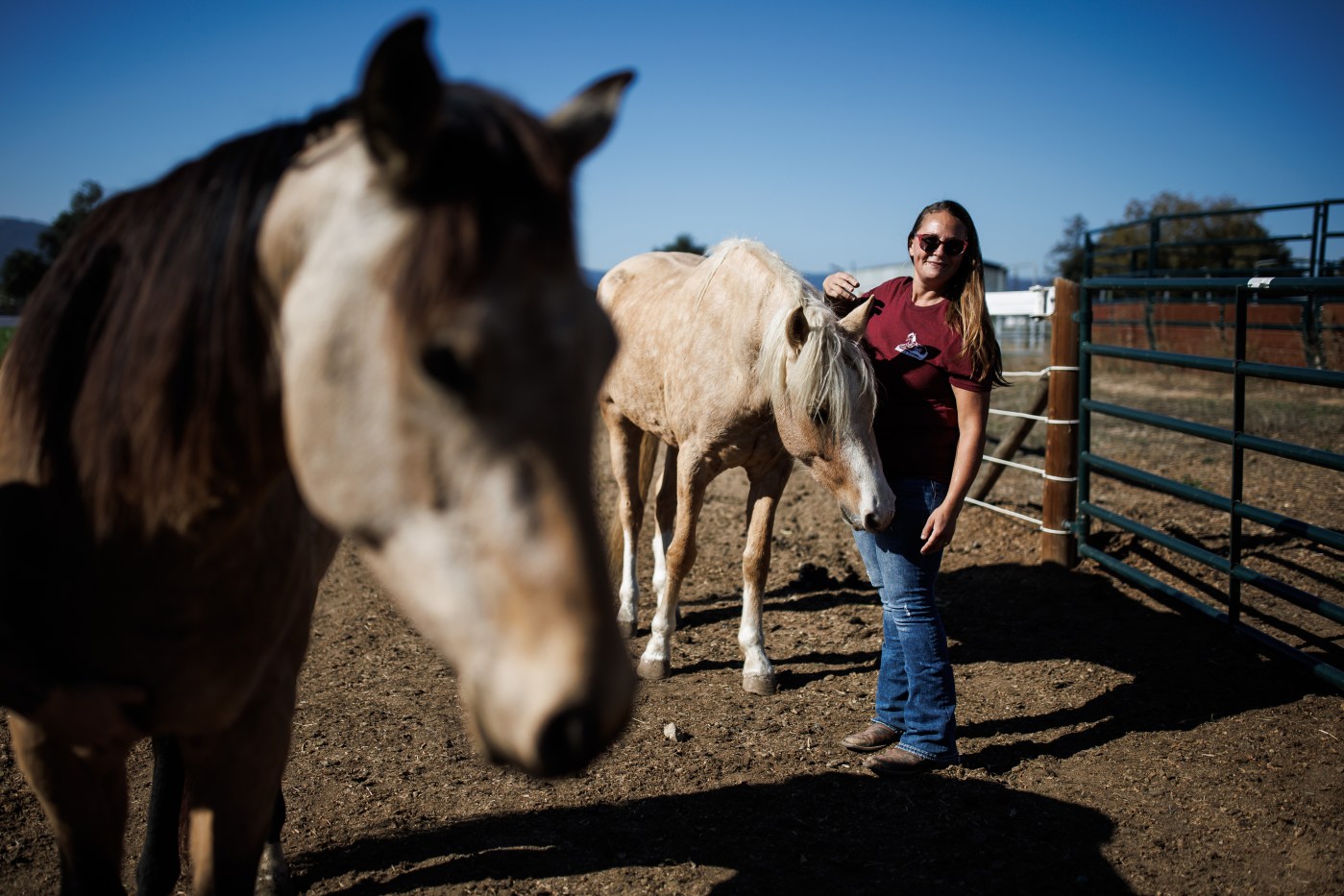Business
Equestrian Businesses in Santa Clara County Face Uncertainty Over Zoning Changes

Horse enthusiasts and equine businesses in southern Santa Clara County are experiencing heightened anxiety due to a proposed rezoning initiative that could significantly alter the operational landscape for rural and agricultural enterprises. The draft changes under consideration may reclassify horses, potentially impacting the livelihoods of those engaged in equestrian activities.
Located in Gilroy, California, Dana De Frates and her husband, Jason, have cultivated their “little patch of heaven” on nearly 10 acres of land since moving from Half Moon Bay eight years ago. Their venture, De Frates Horsemanship, has become a hub for horse owners across the Bay Area, offering training and education to enhance equine care and ownership. However, De Frates expressed concern about the proposed changes, which suggest that horses may no longer be classified as livestock within the “ag exclusive” zone.
In an email correspondence, Leza Mikhail, deputy director of the county’s department of planning and development, clarified that the county is not proposing to rezone any properties. Instead, the amendments aim to “standardize, clarify, and streamline existing regulations, support agricultural viability and land, and protect the rural character of Santa Clara County.” Despite this assurance, many equine business owners, including De Frates, fear the implications of these potential zoning adjustments on their future operations.
De Frates noted that while she has adhered to all existing regulations, the prospect of new zoning codes could stifle her ambitions to expand services, such as breeding programs and facilities for retired horses. “I’m disappointed that those opportunities would be taken away from me,” she stated.
The impact of these proposed changes is not limited to De Frates alone. Tyler Flippo, owner of Coyote Canyon Ranch in Morgan Hill, echoed similar fears. With the responsibility of boarding approximately 50 to 60 horses and managing 200 acres of farming land, he relies on his horse boarding business to support his hay production. Flippo’s previous attempts to secure a permit were thwarted by prohibitive costs, which he estimates at around $10,000. He expressed that without compliance, the zoning amendments could lead to the complete dissolution of his business.
The county has been gathering feedback from the community through a series of meetings to discuss the proposed zoning adjustments. Martha McNiel, director of the nonprofit DreamPower Horsemanship, has participated in these discussions and observed considerable confusion among attendees. “There’s a lot of unintended consequences that I don’t think they foresaw or expected,” she remarked.
McNiel, who provides equine-assisted therapy, also highlighted the financial burdens that many equine businesses face when attempting to comply with current regulations. With profit margins being slim, upgrading facilities to meet new codes can be prohibitively expensive, prompting concerns that businesses may relocate to areas with more accommodating regulatory environments. “If all of this were to shut down and we were to become another bedroom community of commuters, it would be losing the charm and the attractiveness of the South County area,” she added.
Mikhail reiterated that the county’s intent is to balance the needs of the equestrian community while preserving agricultural lands. She emphasized the importance of community input in shaping a sustainable path forward.
While many equine businesses support the goal of protecting agricultural land, they fear the unforeseen consequences of the proposed zoning changes. Jason De Frates articulated this sentiment, stating, “I don’t want to look over there and see condos or townhouses. However, by doing some of these things they’re pushing out these small farmers and equestrian facilities that are at the core of a lot of agriculture.”
As the discussions continue, the future of equine businesses in southern Santa Clara County remains uncertain, with owners anxiously awaiting the outcome of the proposed zoning amendments and their potential impact on their livelihoods and the community.
-

 Science2 weeks ago
Science2 weeks agoIROS 2025 to Showcase Cutting-Edge Robotics Innovations in China
-

 Politics2 weeks ago
Politics2 weeks agoJudge Considers Dismissal of Chelsea Housing Case Citing AI Flaws
-

 World2 weeks ago
World2 weeks agoBravo Company Veterans Honored with Bronze Medals After 56 Years
-

 Lifestyle2 weeks ago
Lifestyle2 weeks agoStone Island’s Logo Worn by Extremists Sparks Brand Dilemma
-

 Health2 weeks ago
Health2 weeks agoStartup Liberate Bio Secures $31 Million for Next-Gen Therapies
-

 Top Stories2 weeks ago
Top Stories2 weeks agoIndonesia Suspends 27,000 Bank Accounts in Online Gambling Crackdown
-

 Sports2 weeks ago
Sports2 weeks agoMel Kiper Jr. Reveals Top 25 Prospects for 2026 NFL Draft
-

 Health2 weeks ago
Health2 weeks agoTop Hyaluronic Acid Serums for Radiant Skin in 2025
-

 World2 weeks ago
World2 weeks agoHoneywell Predicts Record Demand for Business Jets Over Next Decade
-

 Politics2 weeks ago
Politics2 weeks agoNew Jersey Voters Urged to Register Ahead of November Election
-

 Lifestyle2 weeks ago
Lifestyle2 weeks agoMary Morgan Jackson Crowned Little Miss National Peanut Festival 2025
-

 Sports2 weeks ago
Sports2 weeks agoYamamoto’s Mastery Leads Dodgers to 5-1 Victory in NLCS Game 2









